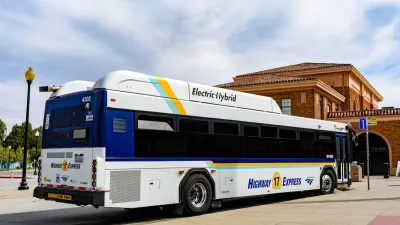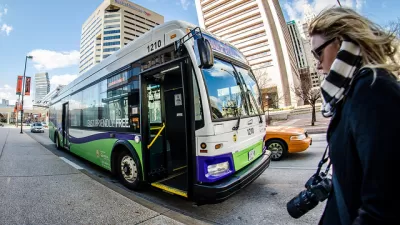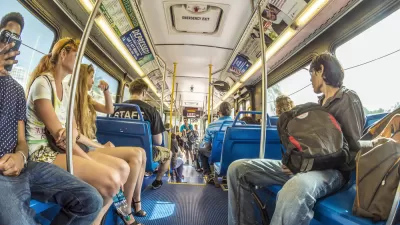What will convince drivers to permanently switch to mass transit? A reliable system and incentives aren't enough, say a group of Swedish researchers, the experience of public transit should also match the qualities people love about cars.
In a report published in the latest issue of the journal Transport Policy, the researchers offer three general suggestions for improving mass transit systems, writes Eric Jaffe. First, they believe transit agencies need to pay more attention to rider perceptions because single "critical incidents," like a bad rush hour experience, can turn people away. "Too often," say the researchers, "transit operators evaluate service quality based on criteria they consider important - even if riders don't feel the same."
This leads to their second point, which is that "agencies should target the motivations that cause people to drive instead of ride." Most drivers prefer the comfort and convenience of their own cars, but ticket integration programs that make the rides simpler and cheaper could encourage them to make the switch. In Finland, such a program reported a 10 to 20 percent shift away from private car use.
The researchers' last recommendation is that "[a]gencies would be wise to recognize that not all drivers have the same potential to become riders," and target their programs accordingly. New residents, for instance, might be more inclined to switch between travel modes. "Similarly," says Jaffe, "places that have a high volume of 'choice' riders — those who could take a car but choose instead to ride — may take more note of efforts like station and security upgrades, relative to basic qualities like speed."
FULL STORY: 3 Keys for Drawing Drivers to Mass Transit

Planetizen Federal Action Tracker
A weekly monitor of how Trump’s orders and actions are impacting planners and planning in America.

Maui's Vacation Rental Debate Turns Ugly
Verbal attacks, misinformation campaigns and fistfights plague a high-stakes debate to convert thousands of vacation rentals into long-term housing.

Restaurant Patios Were a Pandemic Win — Why Were They so Hard to Keep?
Social distancing requirements and changes in travel patterns prompted cities to pilot new uses for street and sidewalk space. Then it got complicated.

In California Battle of Housing vs. Environment, Housing Just Won
A new state law significantly limits the power of CEQA, an environmental review law that served as a powerful tool for blocking new development.

Boulder Eliminates Parking Minimums Citywide
Officials estimate the cost of building a single underground parking space at up to $100,000.

Orange County, Florida Adopts Largest US “Sprawl Repair” Code
The ‘Orange Code’ seeks to rectify decades of sprawl-inducing, car-oriented development.
Urban Design for Planners 1: Software Tools
This six-course series explores essential urban design concepts using open source software and equips planners with the tools they need to participate fully in the urban design process.
Planning for Universal Design
Learn the tools for implementing Universal Design in planning regulations.
Heyer Gruel & Associates PA
JM Goldson LLC
Custer County Colorado
City of Camden Redevelopment Agency
City of Astoria
Transportation Research & Education Center (TREC) at Portland State University
Jefferson Parish Government
Camden Redevelopment Agency
City of Claremont





























